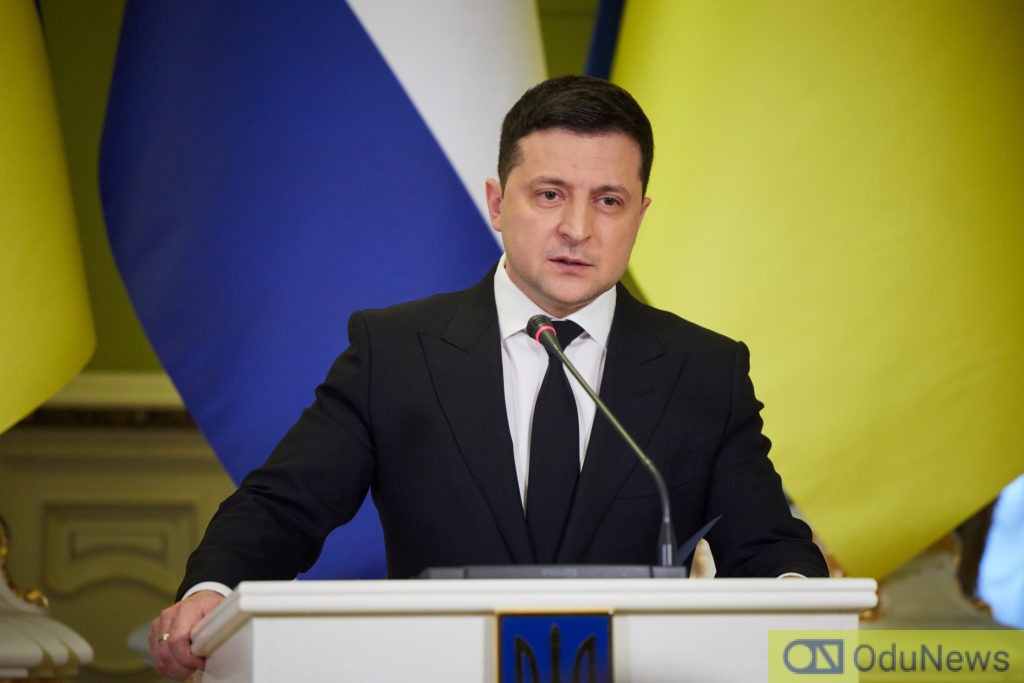
Ukrainian President Volodymyr Zelensky has indicated that Moscow’s willingness to negotiate on the Ukraine conflict may largely depend on the results of the upcoming U.S. elections. During a press briefing in Kyiv, Zelensky stated, “It depends on the elections in the United States,” referring to how a shift in U.S. leadership could alter the dynamics of the conflict.
If Vice President Kamala Harris wins, she is expected to maintain the Biden administration’s pro-Ukraine stance, albeit with potential friction points over the use of Western weapons inside Russia. Former President Donald Trump, on the other hand, has signaled he would reconsider support for Ukraine, suggesting he could end the war quickly, possibly by brokering a peace plan that favors Russia’s objectives. Trump’s vice-presidential pick, J.D. Vance, has proposed terms that align closely with Moscow’s interests.
Despite the potential policy shift, analysts argue that Russia’s stance is unlikely to change in the near term. Thomas Graham, a Russian foreign policy expert at the Council on Foreign Relations, remarked that it’s unclear what leverage Trump could use to swiftly resolve the war. “I don’t think it’s a quick process,” Graham said, noting that any reduction in U.S. aid might impact the battlefield.
Russia could exploit any political rifts in the U.S., with Putin likely to seize on perceived “cracks in Western unity,” according to Graham. These divisions could manifest in reduced U.S. aid, changes within NATO, or financial pressures faced by European allies.
The broader implications of the Ukraine conflict reach beyond Russia and Ukraine alone, with experts suggesting that Putin views the war as part of a larger effort to diminish U.S. influence globally. “Ukraine is just a means to an end, and the end is to further limit US influence in international affairs,” said John Lough, a Russia and Eurasia Program associate at Chatham House in London.
The ongoing conflict has taken a heavy toll, with NATO estimating that over 600,000 Russian soldiers have been killed or wounded. Reports from Ukrainian military officials indicate that Russia’s tactics rely heavily on sheer numbers. Commander Oleh Shiryaev of the 225th Separate Assault Battalion described Russian assaults as “meaty,” referring to the relentless waves of troops deployed across the frontline.
Ukrainian forces face their own challenges. In the Zaporizhzhia region, Ukrainian officer “Bankir” highlighted how Russia’s large troop numbers and extensive resources complicate defensive efforts. Ukrainian National Guard spokesman Vitaliy Milovidov, fighting in Donetsk, noted that while Ukraine has ammunition, “there is never enough,” underscoring the need for continued international support.
European countries are ramping up ammunition production to counteract potential reductions in U.S. aid. However, experts believe that even with current Western support, Ukraine’s allies may be unwilling to supply the level of resources needed for major advances on the battlefield.
Putin’s strategy also appears aimed at sapping Ukrainian morale. Russia’s repeated strikes on civilian infrastructure, especially during winter, are testing the endurance of ordinary Ukrainians. Following the atrocities in Bucha and Mariupol, along with reports of forced deportations, Ukrainians remain resolved against capitulation.


Comments are closed.